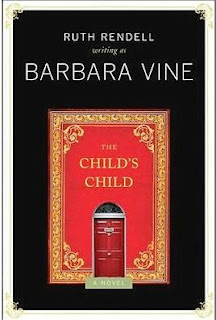"At launch ceremony held on Monday, March 5, 2012 in the Sovereign Ballroom of downtown Toronto’s Le Meridien King Edward Hotel, author Andrew Westoll was named the winner of the 2012 Charles Taylor Prize for Literary Non-Fiction for his book
The Chimps of Fauna Sanctuary: A Canadian Story of Resilience and Recovery, published by HarperCollins. Noreen Taylor, chair of the Charles Taylor Foundation, announced the winner’s name before a packed audience of invited guests, publishers, and media, and presented him with a cheque for $25,000 and a specially commissioned crystal award, designed by Toronto graphic designer Peter Enneson, and created by Cascade Crystal.
The remaining nominees each received a $2,000 honorarium. [...]
The previous winners of the Charles Taylor Prize for Literary Non-Fiction are Wayne Johnston for
Baltimore’s Mansion, published by Knopf Canada and awarded the prize on May 8, 2000; Carol Shields for
Jane Austen, published by Penguin Books Canada and awarded the prize on April 22, 2002; Isabel Huggan for
Belonging: Home Away From Home, published by Knopf Canada and awarded the prize on April 19, 2004; Charles Montgomery for
The Last Heathen: Encounters With Ghosts and Ancestors in Melanesia, published by Douglas & McIntyre and awarded the prize on February 28, 2005; J. B. MacKinnon for
Dead Man in Paradise, published by Douglas & McIntyre and awarded the prize on February 27, 2006; Rudy Wiebe for
Of This Earth: A Mennonite Boyhood in the Boreal Forest, published by Knopf Canada and awarded the prize on February 26, 2007; Richard Gwyn for
John A.: The Man Who Made Us, The Life and Times of John A. Macdonald, Volume One: 1815 – 1816, published by Random House Canada and awarded the prize on March 3, 2008; Tim Cook for
Shock Troops: Canadians Fighting the Great War, 1917 – 1918, Volume Two, published by Viking Canada Canada and awarded the prize on February 9, 2009; Ian Brown for
The Boy in the Moon: A Father’s Search For His Disabled Son, published by Random House Canada and awarded the prize on February 8, 2010; [and] Charles Foran for
Mordecai: The Life & Times, published by Knopf Canada and awarded the prize on February 14, 2011."
—
Charles Taylor Prize
Read more...
Find out more about Andrew Westoll and the 2013 Elora Writers' Festival lineup of authors
here...
And buy all their books
here...

































